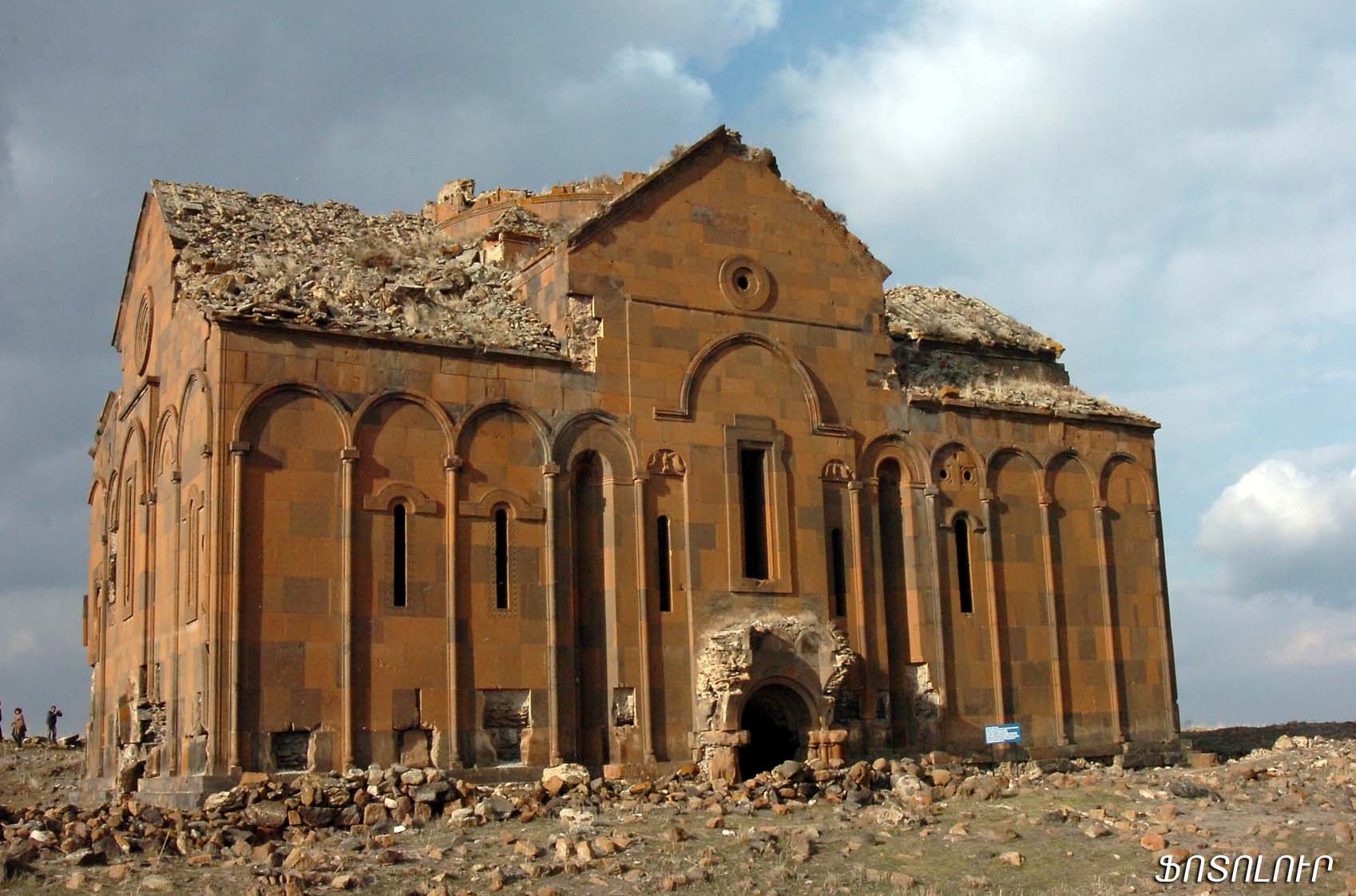
The ancient Armenian city of Ani in the eastern province of Kars continues to attract more tourists each year. In 2012, a total of 43,657 people visited the site close to a third of the visitors are from foreign countries, according to tourism officials, the Hurriyet Daily News reports, noting that “Ani has long been regarded as one of Turkey’s most impressive tourist sites.”
Speaking to Anatolia news agency, Kars Culture and Tourism Manager Hakan Doğanay said there were a total of 21 main cultural treasures in Ani. “In fact, we call Ani an iceberg because we know there is a lot to discover and excavate at Ani.”
Experts know that Ani was a trade center in the past, said Doğanay, adding that the ancient city was a cultural mosaic. The cultural manager further said that if excavations were completed at the site, it could become one of the country’s leading tourism sites.
The planned excavation work will involve creating a detailed map of the site, which was once the center of a powerful Armenian empire and possessed a population of between 100,000 and 200,000 over a millennium ago, making it one of the biggest cities in the world at the time.
The Hurriyet daily News reminds that Ani was once the capital of a medieval Armenian kingdom that covered much of present-day Armenia and eastern Turkey.
Dubbed the “City of 1,001 Churches,” Ani stood on various trade routes, and its many religious buildings, palaces, and fortifications were among the most technically and artistically advanced structures in the world at the time, according to specialists.
The site occupied 78 hectares of land and was surrounded by 4,500-meter-long ramparts. In addition to its numerous churches, the site also features the remains of an inn, a public bath, one of the first mosques in Anatolia and other buildings. The site was located on the historic Silk Road and formed the first gate connecting the Caucasus to Anatolia before a sea route was discovered.
“Ani is a city of universal religions. We call it a world city since people from all nations, cultures, and races live there,” he said. “It is essential to bring this world city to light and give it to the world as soon as possible. Our work is ongoing in a planned and systematic way.”








